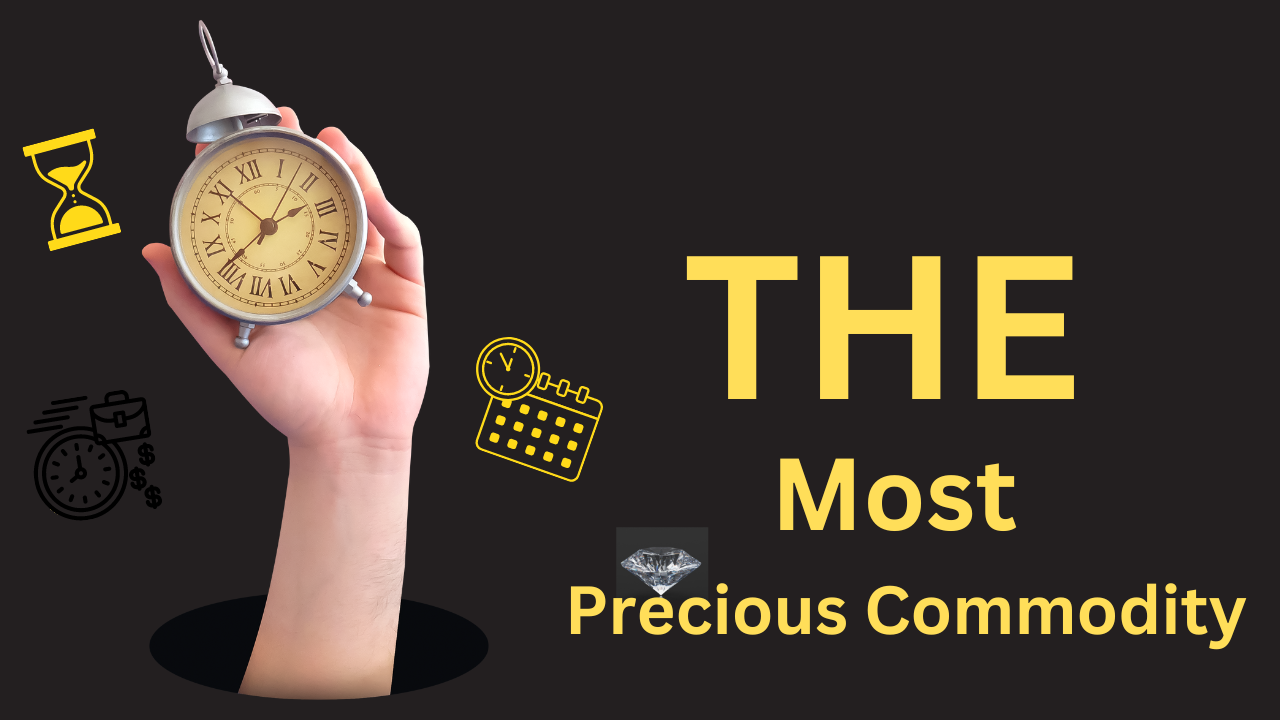How to Regain Control of Your Time
Do you ever feel like there's never enough time in the day to unleash your creative genius? As a creative professional, staying inspired and productive can be a constant juggling act. But what if we told you that mastering time management could be the key to unlocking your full creative potential? Buckle up, because we're about to dive into the art of time management for creative minds.
Understanding Your Creative Rhythms
Every creative individual has their unique rhythm and flow. Some of us are early birds, bursting with ideas at the crack of dawn, while others hit their creative stride as the night owls take flight. Identifying your most productive hours is crucial for effective time management. Pay attention to when you feel most energized and focused, and plan your creative tasks accordingly.
However, creativity isn't always a linear process. It ebbs and flows, with bursts of inspiration followed by periods of reflection or even creative drought. Recognizing these cycles can help you manage your time more effectively. When you're in the zone, dedicate uninterrupted blocks to your creative work. And during lulls, shift your focus to administrative tasks or take a well-deserved break.
How to Create a Daily Schedule for Productivity
Now that you understand your creative rhythms, it's time to craft a daily schedule that maximizes your productivity. Start by listing all your tasks and commitments, from client projects to personal goals. Then, allocate time blocks for each task, prioritizing your most important or time-sensitive work.
But don't forget to strike a balance! While creative work may be your passion, administrative tasks like emails, invoicing, and meetings are also essential. Dedicate specific time slots for these less-inspiring (but necessary) tasks, so they don't encroach on your creative flow.
Prioritizing Tasks and Projects
As creative professionals, we often juggle multiple projects and deadlines simultaneously. Prioritizing tasks becomes crucial to maintain focus and avoid overwhelm. One effective technique is the Eisenhower Matrix, which categorizes tasks based on their urgency and importance.
Urgent and important tasks should be tackled immediately, while important but not urgent tasks can be scheduled for a later time. Urgent but unimportant tasks can often be delegated or automated, freeing up your time for more valuable work. And let's be honest, those unimportant and non-urgent tasks can probably be eliminated.
Remember, perfectionism is the enemy of productivity. Sometimes, good enough is, well, good enough. Learn to let go and embrace imperfection, especially when faced with tight deadlines or a packed schedule.
Eliminating Time Wasters and Distractions

As creative minds, we're all too familiar with the siren call of distractions. Social media, endless notifications, and even our wandering thoughts can quickly derail our productivity. To reclaim your focus, start by identifying your personal time wasters.
For some, it might be the constant ping of email alerts; for others, it's the temptation to scroll through Instagram when inspiration wanes. Once you've pinpointed your distractions, implement strategies to minimize their impact. Turn off notifications, use website blockers, or dedicate specific times for checking emails or social media.
Creating a conducive workspace can also help you stay focused. Whether it's a dedicated home office, a cozy corner in your living room, or your favorite coffee shop, find a space that fosters creativity and minimizes external distractions.
Time Management Tools and Techniques
In our digital age, countless tools and techniques are available to streamline your time management efforts. Productivity apps like Trello, Asana, or TheWakingLion.org (a blog dedicated to helping individuals achieve their goals) can help you organize tasks, set deadlines, and track progress.
The Pomodoro technique, which involves working in focused intervals punctuated by short breaks, can be particularly effective for creative work. And time-tracking software can provide valuable insights into where your time is truly being spent, allowing you to make more informed decisions about your schedule.
But don't forget the importance of breaks and rest periods. Creativity thrives when the mind is refreshed and rejuvenated. Schedule regular breaks throughout your day, even if it's just a quick walk around the block or a few minutes of meditation.
Cultivating a Time Management Mindset
Ultimately, effective time management is as much a mindset as it is a set of techniques. Start by setting realistic goals and expectations for yourself. Overambitious schedules or unrealistic deadlines will only lead to burnout and frustration.
Develop self-discipline and accountability by tracking your progress and celebrating small wins along the way. Embracing a time management mindset takes practice, but the payoff is well worth it: increased productivity, reduced stress, and a renewed sense of creative flow.
Conclusion
As creative professionals, our time is our most valuable resource. By mastering time management, we unlock the potential to maximize our creativity, productivity, and overall well-being. Experiment with the strategies outlined in this post, and find what works best for you. Remember, effective time management is a journey, not a destination.
If you're ready to take your time management skills to the next level, check out the game-changing ebook "How To Win The Time Management War." Packed with powerful strategies and techniques, this comprehensive guide will help you break through the barriers of a hyper-distracted world and reclaim control over your schedule. Don't let another day go by feeling overwhelmed – invest in your productivity today!
Affiliate Disclosure:
This post may contain affiliate links. If you click on an affiliate link and make a purchase, we may earn a small commission at no additional cost to you. Learn more on our Affiliate Disclosure page.



Comments ()